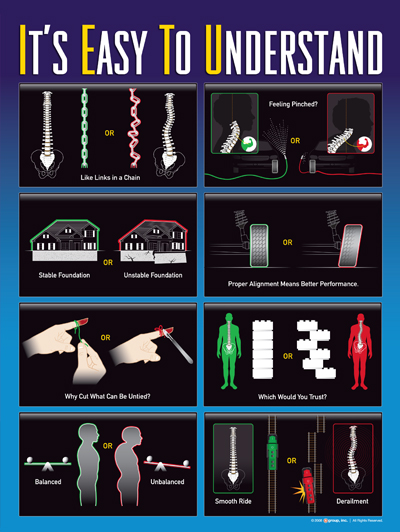We can say that no one is structurally perfect; however, there is a normal range. In the same manner that we can understand what a fever is because we know what normal temperature should be, we can also look at the spine and determine if a Spinal Shift has occured by comparing them to an established set of normal measurements. There are established normals almost everywhere we look, from the gauges and warning indicators on the dashboard of your car to a headache in the middle of the day. These warning indicators/secondary conditions (symptoms) are meant to help us know when something is wrong so that we can take the proper action to fix the root of the problem.
The body uses secondary conditions (symptoms) as warning indicators of a potentially more serious problem. A Spinal Shift is such a problem that may be the cause of your secondary condition. Our office focuses on detecting and correcting these Spinal Shifts so that the body can heal on its own and you can be free from these secondary conditions.
Spinal Shifts can occur due to a childhood fall, a sports injury, an automobile accident, repetitive stresses (such as sitting at a desk for hours per day), or a variety of other seemingly innocuous injuries.
